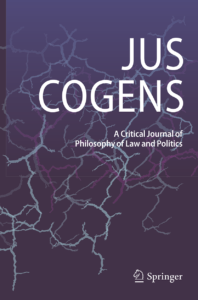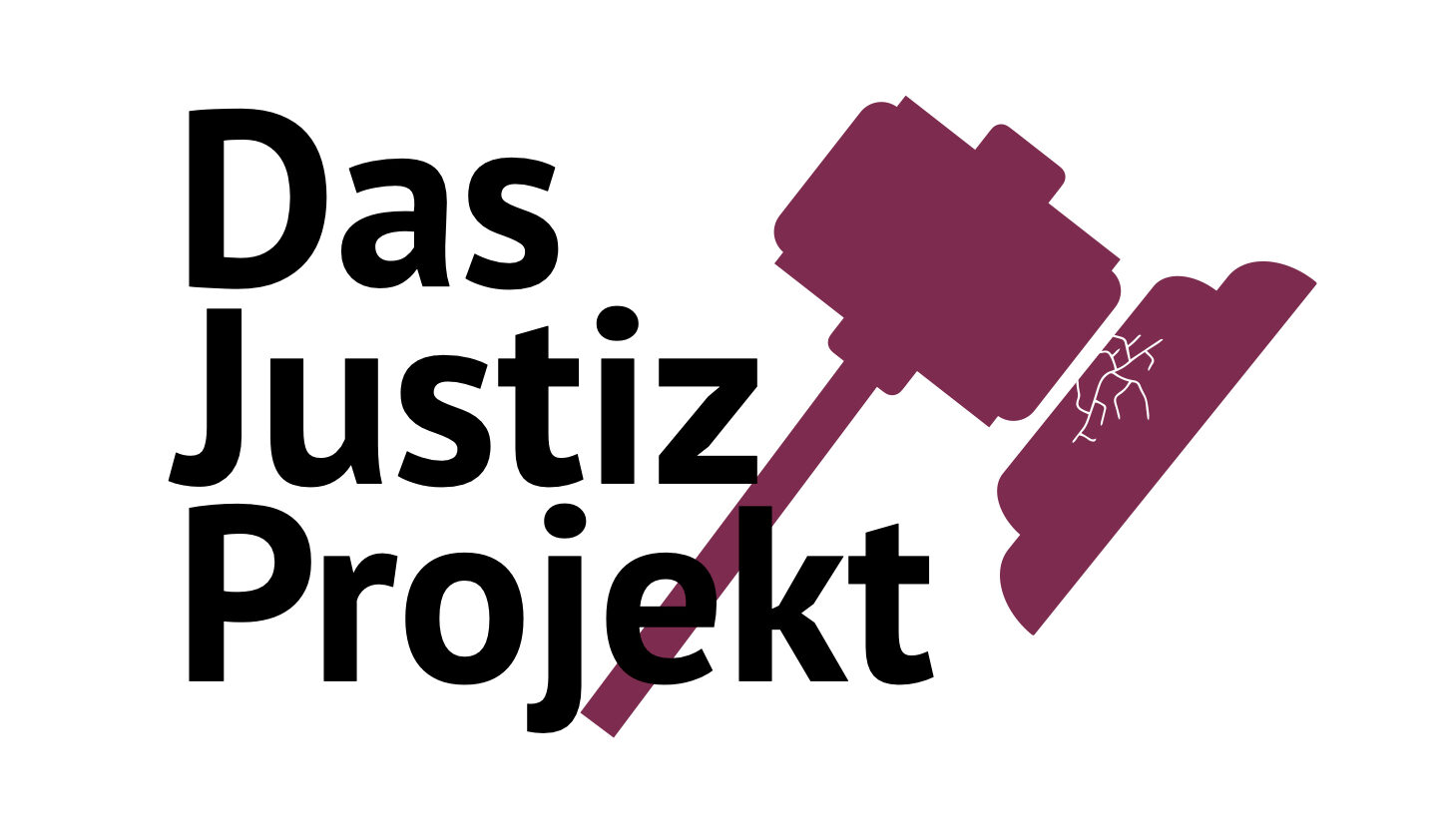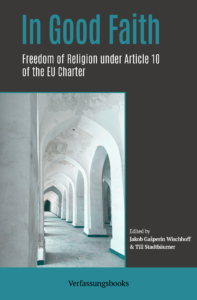The Securitarian Turn in Italian Criminal Law
In 2025 and 2026, Italy’s far-right government pushed through two far-reaching “Security Decrees” using emergency powers. The two Security Decrees differ in content and together amount to a wide-ranging reform of the Italian criminal justice system. Yet, despite their apparent heterogeneity, they share a number of features that point to a common securitarian and illiberal approach.
Continue reading >>Social-Media-Verbot à la française
Nun diskutiert auch Deutschland über ein Mindestalter für die Nutzung sozialer Medien. Andere Länder sind da schon weiter: Frankreichs Nationalversammlung hat Ende Januar einen entsprechenden Gesetzesentwurf verabschiedet. In seinem entsprechenden Gutachten hat der französische Staatsrat einige verfassungs- und unionsrechtliche Spannungslagen herausgearbeitet, die auch für die deutsche Debatte Orientierung bieten können. Außerdem legt die Stellungnahme durch ihre flexible Handhabung der Verhältnismäßigkeitsprüfung auch einige blinde Flecken der deutlich rigideren deutschen Verhältnismäßigkeitsdogmatik offen.
Continue reading >>Paradigmenwechsel in der Privatschulregulierung
Wegen des sogenannten Sonderungsverbots darf der Staat private Ersatzschulen nur dann genehmigen, wenn unter anderem „eine Sonderung der Schüler nach den Besitzverhältnissen der Eltern nicht gefördert wird“. Vor fast zehn Jahren hatten Forschungen am Wissenschaftszentrum Berlin für Sozialforschung eine breite Debatte darüber ausgelöst, dass das Privatschulwesen in Deutschland sozial selektiver wird. Am 25. Februar stimmt das Berliner Abgeordnetenhaus nun über eine Gesetzesnovelle ab, die das Privatschulwesen gerechter ausgestalten soll. Um die Neuregelung wurde bis zuletzt gerungen – doch die verfassungsrechtliche Kritik daran ist im Ergebnis nicht begründet.
Continue reading >>The Castle Method
The EU leaders’ informal competitiveness retreat at Alden Biesen Castle on 12 February produced a joint statement with a familiar ambition: completing the Single Market. Less noticed, however, is that the statement also sketches a programme of institutional and procedural reform. It is an attempt to re-engineer, through an informal summit, the EU’s constitutional and institutional architecture, without the safeguards of formal Treaty revision.
Continue reading >>The Price of Constitutional Subversion
On February 19, the Seoul Central District Court sentenced former President Yoon Suk Yeol to life imprisonment for leading an insurrection. The events leading to his conviction began with his declaration of martial law on December 3, 2024, which banned all political activity. The Court’s reasoning shows that Yoon’s actions struck at the heart of democracy. At the same time, his supporters’ persistent refusal to accept the verdict highlights a deeper problem: the fragility of democratic legitimacy in a polarized society.
Continue reading >>Venezuela’s Amnesty Law
The U.S. intervention in Venezuela violated the ius cogens prohibition of the use of force and the principle of non-intervention of the UN Charter. At the same time, it created room for political change. The recently adopted Venezuelan Amnesty Law appears to go in that direction. However, a law should not be judged only by what it proclaims, but also — and above all — by its real effects. From this perspective, fundamental doubts arise as to whether the Amnesty Law will contribute to a true democratic renewal in Venezuela.
Continue reading >>Abwägung statt Alarmismus
Nach einem Vorstoß von Politikerinnen aus SPD und CDU sind paritätische Wahllisten wieder auf der politischen Agenda. Und damit auch das Argument, sie seien mit dem Grundgesetz nicht vereinbar, sogar demokratiefeindlich. Während die Landesverfassungsgerichte aus Brandenburg und Thüringen die dortigen Paritätsgesetze für verfassungswidrig erklärten, hat das Bundesverfassungsgericht sich bisher nicht ausführlich dazu geäußert. Anstatt jedoch über konkrete Regelungsmöglichkeiten zu diskutieren, dominieren Extrempositionen die Paritätsdebatte. Ein Grund mehr, die Debatte zu versachlichen: Parität ist kein Systembruch mit der Verfassung, sondern eine politische Entscheidung.
Continue reading >>Extreme Klauseln
Die Extremismusklausel ist zurück – und das ohne jede Ankündigung oder parlamentarische Auseinandersetzung. Damit hat die Bundesregierung einen gefährlichen Weg beschritten. Angesichts der aktuellen politischen Lage wäre es vielmehr geboten, Demokratieprojekte zu stärken und rechtlich abzusichern. Stattdessen bürdet sie Demokratieprojekten unerfüllbare Pflichten auf und gefährdet deren Überleben. Dabei nutzt sie einen Extremismusbegriff, der sich verselbstständigt hat und nicht rechtssicher eingehegt werden kann.
Continue reading >>The European Commission at the Board of Peace
Commissioner for the Mediterranean Dubravka Šuica attended the inaugural meeting of the Board of Peace (BoP) in Washington. Her presence triggered significant criticism from several Member States and European Parliament groups, considering that she did not have a mandate to take part in such a politically contested initiative. The European Commission, on the other hand, defended her participation on the ground that the EU has a direct interest in the reconstruction of Gaza. Given the questions surrounding the compatibility of the BoP Charter with the EU’s constitutional principles, the Commission’s unilateral action is difficult to defend.
Continue reading >>Kein Raum zum Dissens?
Björn Höcke darf auch in städtischen Hallen auftreten. Zu diesem Ergebnis kam der Bayerische Verwaltungsgerichtshof und bestätigte, dass der Versuch von zwei bayerischen Gemeinden, Auftritte Höckes zu verhindern, rechtswidrig war. Eigens um solche Verbote zu ermöglichen, hatte der bayerische Landtag erst kurz zuvor die Gemeindeordnung geändert. Die Entscheidung des Gerichts macht klar, dass die Gesetzesänderung weitgehend symbolisch ist. Das gilt auch in Hinblick auf das Hauptziel der Reform: die Bewegung Boycott, Divestment, and Sanctions (BDS).
Continue reading >>CURRENT DEBATES
Reflexive Globalisation and the Law
In October 2025, a new Centre for Advanced Studies was established at the Humboldt University of Berlin’s Law Faculty. Named “Reflexive Globalisation and the Law: Colonial Legacies and their Implications in the 21st Century” (RefLex), the Centre explores the premise that the globalisation of law and legal discourse has entered a reflexive phase: one in which law and knowledge production about law are less and less one-directional exports from or within the Global North but rather dynamic, multidirectional exchanges that confront colonial legacies, epistemic hierarchies, and enduring asymmetries of power. This blog symposium, co-edited by Philipp Dann, Florian Jeßberger, and Kalika Mehta, aims to present and extend these interactions to a broader, accessible dialogue with a wider community beyond the university setting. Featuring contributions from a range of different disciplines and regions, the symposium serves as a public prelude to its official launch, which can be watched live here.
Read all articles >>Wem gehört die Wissenschaft?
Wem gehört die Wissenschaft – und wem sollte sie gehören? Obwohl Wissen als öffentliches Gut prinzipiell unbegrenzt teilbar ist, wird der Zugang zu wissenschaftlichen Publikationen und Infrastrukturen durch ökonomische und rechtliche Strukturen beschränkt. Zwischen kommerziellen Verlagsmodellen, staatlicher Finanzierung und Community-getragenen Open-Access-Initiativen stellen sich grundlegende Fragen nach Eigentum, Verantwortung und Unabhängigkeit wissenschaftlicher Arbeit. Das Blog-Symposium „Wem gehört die Wissenschaft?“ greift diese Frage auf und beleuchtet Facetten der Organisation von Wissenschaft als Gemeingut, der Eigentums- und Machtverhältnisse im Publikationssystem und der Bedingungen offener und freier Wissensproduktion.
Read all articles >>ADVERTISEMENT
 Volume 7,
Volume 7,Issue 2
July 2025
JUS COGENS
-
Killing Hitler Word by Word: The Oath as Apocalyptic Lawmaking
GREGOR NOLL
-
Adjudicating Climate Protest as a Tool of Modern Republicanism
DMITRII KUZNETSOV
OUR LATEST PUBLICATION
Jakob Gašperin Wischhoff, Till Stadtbäumer (eds.)
In Good Faith: Freedom of Religion under Article 10 of the EU Charter
Freedom of religion, its interaction with the prohibition of discrimination, and the self-determination of churches are embedded in a complex national and European constitutional framework and remain as pertinent and contested as ever. This edited volume examines the latest significant developments from an EU perspective, placing freedom of religion at the centre of analysis and critically assessing its operationalisation and interpretation in light of the EU Charter.
Discover the Open Access digital edition here.
PROJECTS
VB Security and Crime
In cooperation with:
VB Security and Crime is a cooperation of the Max Planck Institute for the Study of Crime, Security and Law (MPI-CSL) and the Verfassungsblog in the areas of public security law and criminal law. The MPI-CSL Institute is a member of the Max Planck Law network.
Das Justiz-Projekt

Weltweit gerät die unabhängige und unparteiische Justiz unter den Druck des autoritären Populismus.
Wie verwundbar ist die rechtsprechende Gewalt in Deutschland – im Bund und in den Ländern?
VB Security and Crime
In cooperation with:
VB Security and Crime is a cooperation of the Max Planck Institute for the Study of Crime, Security and Law (MPI-CSL) and the Verfassungsblog in the areas of public security law and criminal law. The MPI-CSL Institute is a member of the Max Planck Law network.
EDITORIAL
„Nur die Illusion von Schutz“
Australien hat als erstes Land im Dezember 2025 eine Altersgrenze für soziale Medien eingeführt. Diese Woche zeigte Bundeskanzler Friedrich Merz „viel Sympathie“ für die entsprechenden Vorschläge von SPD und CDU. Neben den detaillierten Regulierungsfragen, die hinter dem Verbot stehen – EU-Kompetenzen, App-Design, Durchsetzbarkeit – wirft die Debatte grundsätzliche verfassungsrechtliche Fragen auf: Wie verteilt das Grundgesetz Verantwortung zwischen Staat, Eltern und Kindern? Welche Rolle spielt Schutz – und wo beginnt Bevormundung?
Continue reading >>“Just the Illusion of Protection”
In December 2025, Australia became the first country to introduce a statutory age limit for social media. This week, German Chancellor Friedrich Merz indicated that he views similar proposals from the Social Democratic Party (SPD) and the Christian Democratic Union (CDU) with “considerable sympathy.” Beyond the detailed regulatory questions underlying such a ban – EU competences, app design, enforceability – the debate raises fundamental constitutional issues: How does the German
Continue reading >>



